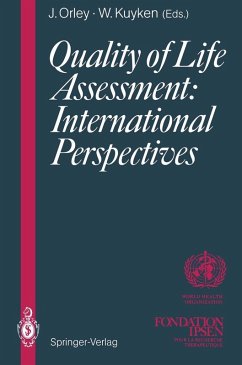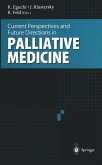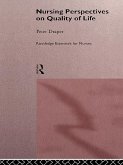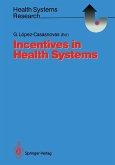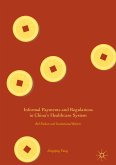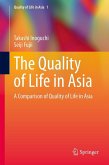Considerable data and expertise have accumulated in the assessment of quality of life, but to date this assessment has largely been restricted to the devel- ment of instruments that are used only in the setting in which they were dev- oped. The chapters of this book, taken together, apply this expertise to a re- tively new area: international quality of life assessment, that is to say, consid- ing quality of life from an international perspective, and developing methods for the assessment of quality of life that can be used in more than one cultural setting. The World Health Organization (WHO) initiatives in the area of inter- tional quality of life assessment arose for several compelling reasons. The World Health Organization has a commitment to equitable and accessible health care for all. This commitment refers not only to health in its narrow sense of the absence of disease and impairment, but to health as astate of physical, mental and social well-being. Disease and impairment affect not just the physical domain of life but also a person's psychological state, level of - dependence and social relationships. This is a reality not yet fully reflected in health care settings. The broadening in focus in the measurement of health to include indicators which address this more holistic sense of health is a welcome emerging trend. The primary aim of any health intervention is to maximise health and minimise disease, thereby enhancing patients' quality of life.
Dieser Download kann aus rechtlichen Gründen nur mit Rechnungsadresse in A, B, BG, CY, CZ, D, DK, EW, E, FIN, F, GR, HR, H, IRL, I, LT, L, LR, M, NL, PL, P, R, S, SLO, SK ausgeliefert werden.

